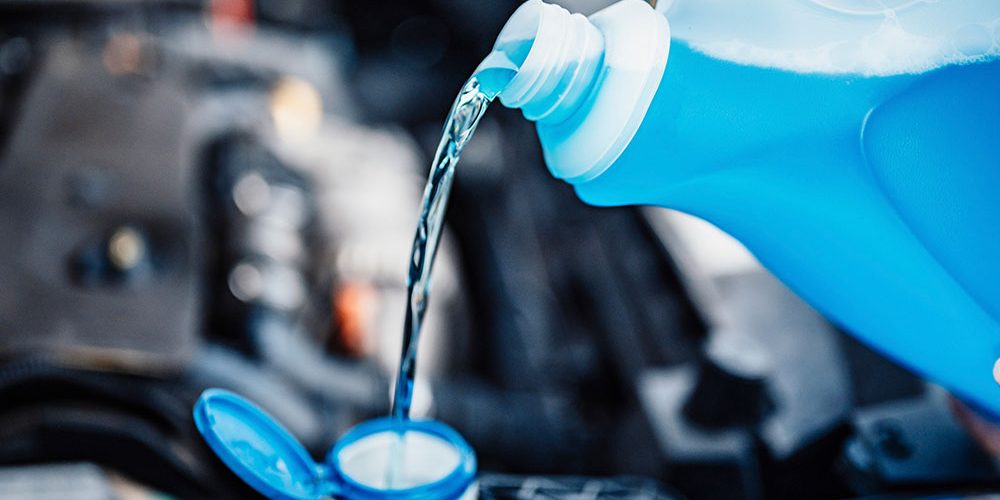If you’re a car owner, you know that keeping your vehicle in good condition requires regular maintenance. One important task is checking the coolant levels and making sure the coolant is in good condition. But what exactly is coolant, and what does it do? In this blog, we’ll explain everything you need to know about engine coolant, including what it is, what it does, and how to check its condition. Stay safe on the roads by keeping your car in good shape!
What is coolant and what does it do?
Keeping your engine running efficiently and reducing wear on your vehicle’s components is an important part of keeping it in good condition. An essential part of that process is using a coolant, also known as antifreeze, to regulate the engine’s temperature by controlling the build-up of heat. There are several types of coolant available which vary from product to product and are based on the type of vehicle you have. It’s important to make sure you use the type that is specified for your car when filling or refilling its cooling system as different cars require different varieties.
Why is coolant important for your car?
Coolant, also known as antifreeze, is a vital component of any vehicle’s engine. It helps keep your car from overheating or freezing over in extreme temperatures, and it keeps all the moving parts in your engine lubricated. Without coolant, your engine could be at risk of serious damage due to the intense heat generated through combustion. The best place to put coolant into your car is in the reservoir under the hood, where you’ll find a marking for ‘low coolant level’. If this drops too low, then your car won’t work properly and it can even get damaged if too little coolant is present inside. Regularly checking the levels of coolant in your car is key to keeping it at its optimal level of performance, so make sure you take this step whenever it’s necessary!
How often should you change your coolant?
Coolant is an essential component of your engine’s health and performance. To ensure optimal engine operation, it is important to check and change the coolant regularly. Coolant should be serviced at least every 30,000 miles to keep the engine running smoothly. The cooler temperatures during winter months place extra stress on your vehicle, making it particularly important to have fresh coolant in the engine before cold weather sets in. Additionally, you should always follow the suggestions included in your owner’s manual for maintenance intervals and specific cooling system requirements. Keeping your vehicle’s coolant properly maintained will improve its fuel efficiency and result in more pleasant and economical rides in future.
How do you know if your coolant needs to be changed and where to go to change it?
Knowing when to change your vehicle’s coolant is essential for keeping it running safely and efficiently. When changing your coolant, it is important to take your vehicle to a qualified mechanic who is experienced in dealing with cooling system repairs. The mechanic will replace the old fluid with new fluid that contains antifreeze and rust-preventing additives. This ensures good protection from freezing temperatures and provides efficient heat transfer away from engine components. So, if you’re uncertain on when you should change your car’s coolant, consult a professional – they will ensure peace of mind and a reliable ride for years ahead!
What are the consequences of not changing your coolant regularly?
Not changing your car’s coolant regularly can lead to serious problems for the engine and costly repairs. Without proper protection from fresh coolant, metal parts inside the motor will corrode faster and run at higher temperatures. Overheating this way can warp cylinders or crack engine blocks, leading to major repair bills in the future. Furthermore, old coolant can pollute local water sources if spilt from a car that isn’t properly maintained. Decreasing the level of contamination by properly disposing of used coolant is essential for environmental safety. Properly taking care of your vehicle with fluid changes and regular inspections is key to avoiding costly repairs and preserving our planet’s resources.
What are the best coolants for cars?
When it comes to keeping your car running smoothly and reliably, the right coolant makes all the difference. The best coolants for cars are typically propylene glycol based as they offer rust protection, so it is important to check the ingredients of a particular coolant before purchasing. Additionally, these types of coolants often work well in both cold and hot climates, whereas other coolants may be engineered for one environment but not the other. Lastly, you should ensure that a proper maintenance schedule is followed when it comes to cooling system servicing and flushing, regardless of the type of coolant used. Doing so will reduce wear and tear on your engine and make sure everything works optimally at all times.
Can you change your car’s coolant at home?
Changing your car’s coolant at home can be a cost-effective way to keep your vehicle in top shape and help it run more efficiently. However, if you’re not familiar with the process or don’t have the right tools, it’s understandable if you feel more comfortable leaving this job to a qualified mechanic.
Engine coolant – The key points
In summary, coolant is a critical component of the function and longevity of any vehicle. It is important to change your car’s coolant regularly, following both the manufacturer’s and mechanic’s recommendations. If you ever have doubts about your coolant levels, get it tested as soon as possible to avoid potential safety or mechanical risks. You should plan for this cost so that you can budget for it ahead of time and have peace of mind that your car is equipped with the appropriate level of protection from the coolant. The price for changing and replacing your vehicle’s coolant varies depending on size and type, but there are a range of solutions available that won’t break the bank. To find out more, contact us at Double Dee Autos and we will be happy to help!

